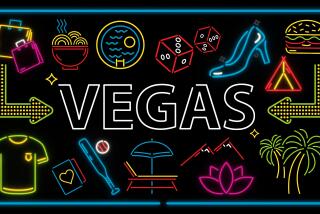In Las Vegas, ‘I Do’ Is Short for ‘I Do Anything I Want’
- Share via
Britney Spears’ recent marriage on the Las Vegas Strip was one more reminder of that city’s role as the capital of the consumption of entertainment. Like so many others before her, Spears headed to the Little White Chapel -- the round-the-clock wedding hall where Joan Collins and Michael Jordan also tied the knot, although not to each other.
Media reports made it sound like a whim: Brat child Britney left her palatial MTV-created digs at the Palms Hotel and succumbed to exactly what Las Vegas encourages, the illusion that adults can act like children and be excused from the consequences. A few hours later, it was already being annulled.
Spears was in Las Vegas because that’s where everyone goes now. It’s the fantasy place of the moment. Two generations ago, its status as Sin City made Las Vegas a pariah; now people go because it promises sin and so much more. The number of tourists tops 36 million annually, more visits than Mecca receives during the annual hajj.
Las Vegas has become the place where desire meets capital, where instinct replaces restraint, where the future of a society, for better and worse, takes a form inconceivable even a generation ago. Las Vegas even generates its profit in a different way than any other city on Earth. It is a rare human who eats an apple grown in a Las Vegas-area orchard or wears a sweater from the wool of sheep fattened on its fine grasses.
Las Vegas and Nevada learned to get paid for things visitors couldn’t do at home. In the culture of “me, me, me, now, now, now,” putting smiles on people’s faces yields terrific dividends. Las Vegas holds a mirror up to its public and says: “What do you want to be, and what will you pay for it?” You can get married by an Elvis impersonator or be the pharaoh at the Luxor.
The city is a script in which the visitor, no matter how ordinary, is the star. It is better than real; it planes the rough edges off reality and makes the story about you. In Las Vegas, you can ride a gondola at the Venetian without ducking the pigeon bombs of Venice. No one at Paris Las Vegas will sneer at your high school French.
All tourist towns reflect desire; Las Vegas anticipates it as well. It succeeds because it offers the middle class a luxury experience at middle-class prices. Combined with the excess the city encourages at every turn and the self-indulgence of American society, these features have made Las Vegas the place everyone goes as the new century gathers momentum.
Capitalism is a warrior culture, a hierarchical mode, and Las Vegas is its epitome. In Las Vegas, ordinary people feel special. Celebrities like Spears and Paris Hilton can receive the attention they so crave.
The evolution of American culture as purely about the self catapulted Las Vegas to prominence. Las Vegas grew into the last frontier city, as foreign at times as Prague but as quintessentially American as Peoria.
In Las Vegas, you can choose your fantasy. And in Las Vegas, if it doesn’t work, you can always take a mulligan.
More to Read
Sign up for The Wild
We’ll help you find the best places to hike, bike and run, as well as the perfect silent spots for meditation and yoga.
You may occasionally receive promotional content from the Los Angeles Times.






